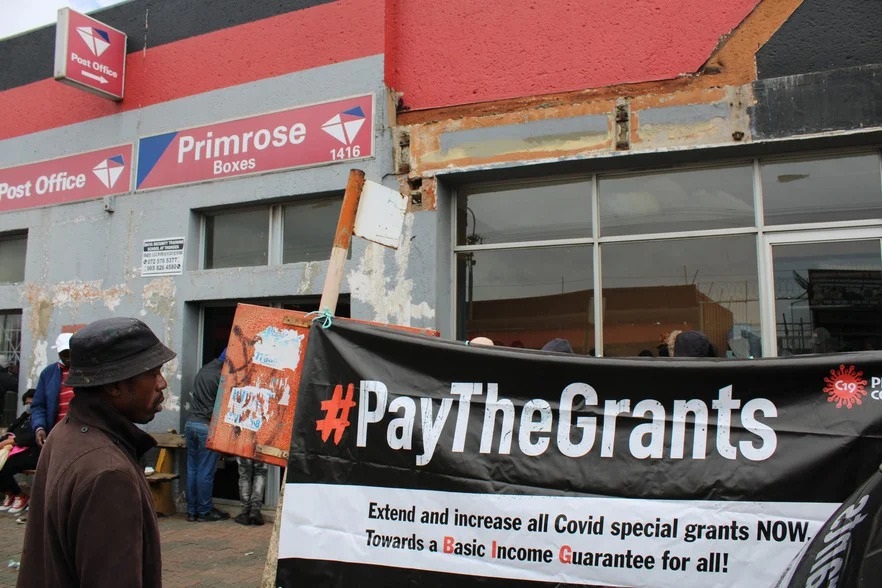By LIEZL HUMAN, GroundUp
- Civil society organisations are taking the government to court over what they say are “unfair” and “exclusionary” regulations for the R350 Social Relief of Distress Grant.
- They want the current regulations declared unconstitutional and set aside.
- They are also opposed to the “arbitrary means test”, which excludes many vulnerable people who qualified for the grant previously. Under the new regulations, grant applicants are disqualified if they earn more than R350 a month.
- The Institute for Economic Justice’s lawyers has also sent a letter of demand to the state to address, with urgency, concerns over the unpaid SRD grants since April to over 10 million applicants.
Civil society organisations are taking the ministers of Social Development and Finance, as well as the South African Social Security Agency (SASSA), to court over “unfair” and “exclusionary” regulations for the R350 Social Relief of Distress Grant. They want the current regulations declared unconstitutional and set aside.
In a media briefing on Thursday, the Black Sash, #PayTheGrants, Amanda.mobi, the Centre for Applied Legal Studies (CALS), the Institute for Economic Justice, and the Social Policy Initiative announced that they have filed an application against the government in the High Court in Pretoria.
Rachel Bukasa, national director of the Black Sash, said they would challenge unfair practices in cases where grants were not paid. They are also opposed to the “arbitrary means test”, which has now excluded many vulnerable people who previously qualified for the grant. Under the new regulations, grant applicants are disqualified if they have an income of more than R350 per month in their bank account.
Bukasa said the new application process is littered with problems. One example, she said, is that people who receive more than one grant, such as a mother getting paid a Child Support Grant on behalf of her child, are also being disqualified. “The launch of the litigation is a last resort to make the system more accessible,” she said.
Bukasa said that the new regulations are too restrictive. She said that civil society organisations have tried to discuss these issues with the government over the past few months to no avail.
She said that R350 is inadequate as the cost of food and other expenses are on the rise.
The activists also highlighted that many payments from April were still outstanding.
Neil Coleman from the Institute for Economic Justice said the country is facing a humanitarian crisis. He said IEJ’s lawyers sent a letter of demand that the state address, with urgency, concerns over the unpaid SRD grants since April to over 10 million applicants.
Francina Nkosi, who spoke on behalf of affected beneficiaries, said that the grant has helped people buy food, medication, and sanitary products for girls and women. “We’re not saying it’s enough, but it’s better than nothing,” said Nkosi.
She said that the exclusion of thousands of beneficiaries had caused a lot of stress among people who have been relying on the grant as their sole means to survive.
GroundUp sent questions to the Department of Social Development and SASSA, but a response was not received by the time of publication.
This article was first published by GroundUp.co.za.


